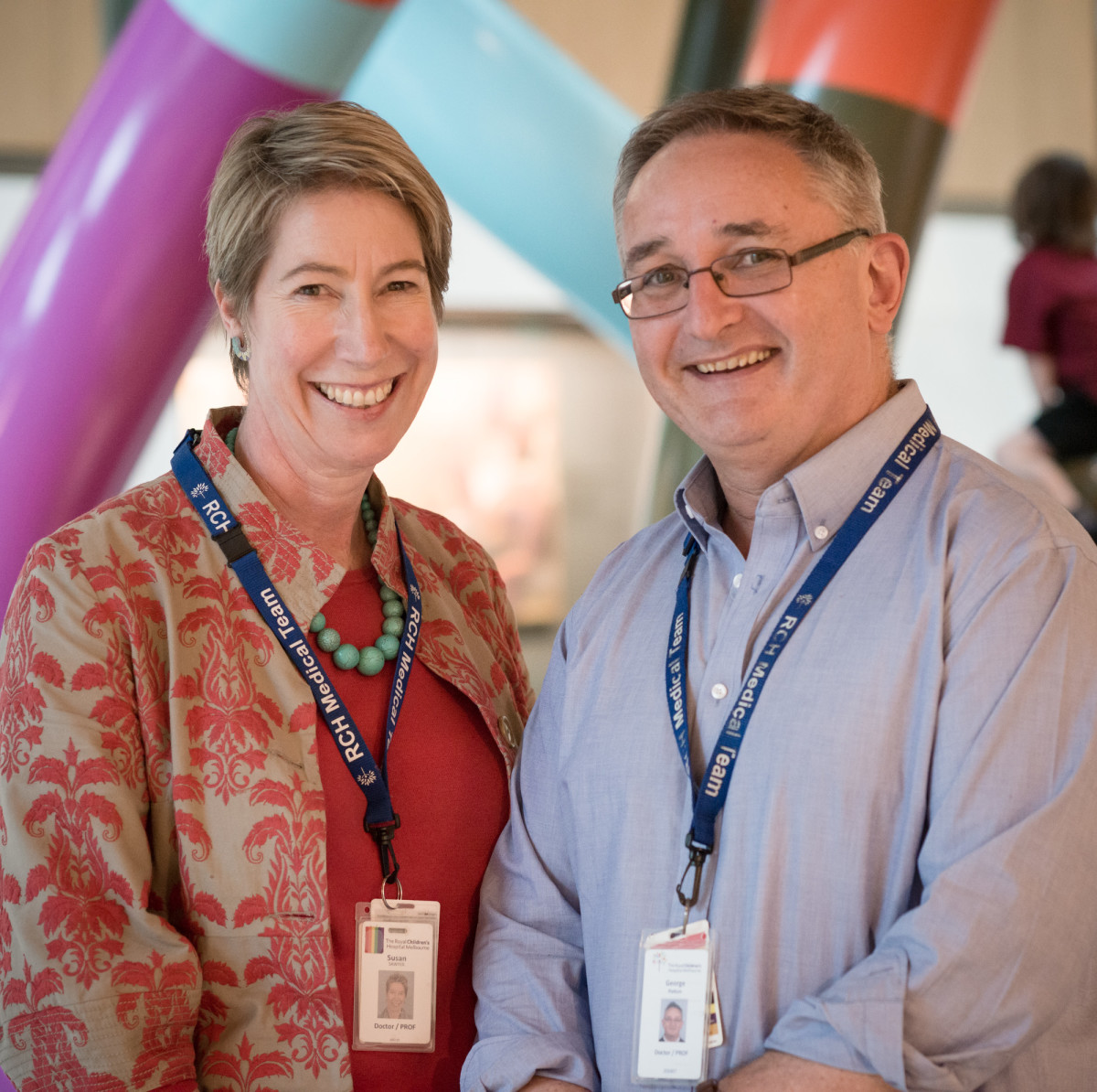Nursing our global youth back to health

Adolescents and young adults are usually left to last in the health care queue, but research shows we can no longer ignore them
Published 10 May 2016
Decades of neglect and chronic under-investment have damaged the health and wellbeing of those aged 10-24, making them the world’s most overlooked demographic when it comes to health.
But a new international inquiry, enlisting experts from 14 countries and headed by University of Melbourne specialists, will aim to to turn the tide and safeguard what is now the largest generation of adolescents and young adults in human history.
There are an estimated 1.8 billion people aged 10-24 in the world – a figure that will jump to two billion by 2030. Almost 90 per cent of these young people live in developing countries.
In a major announcement in London on May 10, University of Melbourne Professor George Patton will lead a special Lancet Commission, which will be tasked with identifying and investigating the shortfalls in global youth health policy.
The commission’s initial report, also released on May 10, suggests their work is cut out for them.

Adolescence is a critical time of formative growth to achieve human potential, a fascinating period of profound physical, psychological, neurological and emotional change. It is a life stage marked by vulnerability and opportunity. Yet little focus has been put on this age group.
Professor Patton says efforts to improve life for this generation will yield a triple dividend of benefits – today, into adulthood, and for the next generation of children.
Our Future: A Lancet Commission on Adolescent Health and Wellbeing report brings together perspectives from public health, economics, political and social sciences, behavioural science and neuroscience.
It provides recommendations for action to protect and promote the health, wellbeing and potential of this important demographic.
Professor Patton is a Professorial Fellow in Adolescent Heath Research at the University of Melbourne. With him on the Lancet Commission is Professor Susan Sawyer, the Geoff and Helen Handbury Chair of Adolescent Health at the University of Melbourne.
Professor Patton says: “There is nothing more important in global health than ensuring adolescents have the resources to do this. It is crucial to invest urgently in their health, education, livelihoods and participation.
This generation of young people can transform all of our futures.
Philanthropist Melinda Gates from The Bill and Melinda Gates Foundation says that adolescents have been forgotten.
“My children’s generation is better equipped to expand the limits of human possibility than any that has gone before. But while responsibility for their health and wellbeing lies with everyone, accountability currently rests with no one,” she says.
“For too long adolescents have been the forgotten community of the health and development agenda. We cannot afford to neglect them any longer.”
The great threats
Two in three young people on the planet grow up in countries where HIV and AIDs, early pregnancy, unsafe sex, depression, injury and violence threaten their health and wellbeing, the report shows.
Adolescents today also face new challenges: rising levels of obesity and mental health disorders, high unemployment and the risk of radicalisation.
Global health efforts have improved the health of children aged under five in the past few decades, but older children have slipped through the cracks.
A new analysis by the Institute for Health Metrics and Evaluation reveals that AIDS, road traffic accidents and drowning account for a quarter of deaths in 10 to 14-year-olds around the world.
For the older age groups, from 15-24, road traffic accidents, self-harm and violence are the leading causes of death. And then there’s mental health.
Depression resulted in the largest amount of ill health for adolescents and young adults.
Alcohol is a huge risk factor for the 20 to 24-year-old group and sadly, maternal disorders are the leading cause of death in young women, responsible for around two in five in the same age bracket.
So the risk factors for youth to young adulthood are serious and they are many.
Professor Sawyer says the breadth of these health issues has been largely neglected.
“The broader approach to prevention really needs to lie beyond just the health sector to include those sectors where young people are spending their lives, like education, welfare, protecting families to do a better job parenting and road safety,” she says.
“In Australia, road traffic one of the largest causes of death for young people.
“Bringing together a complex set of disciplines that don’t readily speak to each other is the opportunity that is provided to us in this work of the commission.
“This generation of young adults can transform all of our futures. There is no more pressing task than ensuring they have the opportunity to do so.”
Ambitious goals, real action
The Lancet Commission brings together 30 of the world’s leading experts from 14 countries as well as two young health advocates.
It is a truly international effort, driven by a partnership between the University of Melbourne, University College London and the London School of Hygiene and Tropical Medicine, and the Columbia University Mailman School of Public Health in the USA.
Professor Patton says adolescence is a critical time of formative growth and brain development second only to infancy.
“Puberty triggers a cascading process of brain development and emotional change that continues through to the mid-20s,” he says.
It’s during those formative years that the unhealthy patterns are formed and often remain for life.
Smoking, drinking, poor diet and unsafe sex, to name a few.
“But because adolescence is generally thought to be the healthiest time of life, young people have attracted little interest and too few resources,” Professor Patton says.
“Indeed, adolescents aged 10 to 24 years have the poorest health care coverage of any age group.”
Education: the magic bullet
Above all else, the Commission sees an urgent need to expand access to free secondary education and to continue gathering better evidence.
“The single best investment we can make is guaranteeing access to free, quality secondary education,” explains Professor Patton.
“Every year of education beyond the age of 12 is associated with fewer births for adolescent girls and fewer adolescent deaths for boys and girls. A healthy, educated workforce has the potential to shape a country’s economic prospects.”
He adds that it is crucial young people are involved in transforming their wellbeing, personal development and health.
“Digital media and new technologies offer remarkable opportunities to engage and empower young people to drive change.
“There is a pressing need to ensure that all young people have opportunities and access to universal health coverage regardless of age, gender, sexual orientation, and marital, and socioeconomic status, particularly the marginalised.”
UN Secretary-General Ban Ki-moon agrees. He calls young people ‘the world’s greatest untapped resource’.
“Adolescents can be key driving forces in building a future of dignity for all,” he says.
“If we can make a positive difference in the lives of 10-year-old girls and boys today, and expand their opportunities and capabilities over the next 15 years, we can ensure the success of the Sustainable Development Goals.”
Banner Image: Shutterstock

